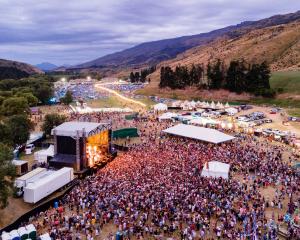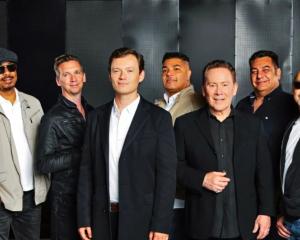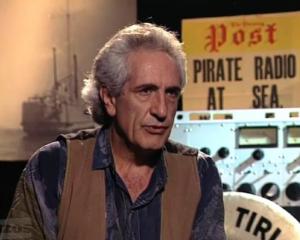Once upon a time, in his teenage years, Kevin MacDonald was afraid to admit he played the bagpipes lest his proclivity for the instrument put him in a box marked uncool.
These days, the founding member of Scottish "bag-rock" band the Red Hot Chilli Pipers blows them loud and proud, his pipe-blowing abilities having taken him to various parts of the globe.
Now, New Zealand is on the agenda. Scotland's Traditional Live Act of the Year award winners (2007 and 2010) arrive here later this month for a seven-concert tour that includes performances in Dunedin (October 1) and Queenstown (October 2).
Although MacDonald acknowledges the band faces a hectic schedule ("before we get to New Zealand, we head to the United States for 10 days and after New Zealand we head to Australia, then the Middle East and Germany to finish off our year ..."), it won't all be work.
"When Scots go on tour we know where the party is - let's put it that way. Unfortunately, the timing of the Rugby World Cup games doesn't suit us. But if Scotland makes the final, we might fly back for it," he says, his Scottish brogue conveying equal portions of hope and humour.
MacDonald and company enjoy blurring the boundaries of bagpipe music, their reworkings of an eclectic range of music emphasising that the instrument isn't limited to renditions of Flower of Scotland, Mull of Kintyre or Amazing Grace, "although we do play that one".
The Red Hot Chilli Pipers' latest album, 2010's Music For The Kilted Generation is a good illustration of that pick-and-mix philosophy: on heavy rock medley Black Night On The Crazy Train, the band segues from Deep Purple's classic to Ozzy Osbourne's belter and follows that with the funk-boogie of War's Low Rider before the album winds up with Robbie Williams' Let Me Entertain You then The Who's Baba O'Riley.
It begs the question: is any song safe?
"Nah," McDonald chuckles down the telephone from Edinburgh.
"There's a wee shot of gospel, a wee shot of dance music; we've got one for the heavy metal fans. On our first album, we've got classics like [Queen's] We Will Rock You and [Survivor's] Eye Of The Tiger. There are not too many genres left we haven't tried. Perhaps we'll try for an opera track.
"It's about having a bit of fun, mixing what people would associate with rock music - drums and guitar and keyboards - with bagpipes and making something people haven't heard before.
"People think we just take rock songs and add bagpipes to them, but there are instances where we take traditional songs and add rock elements to them. It just doesn't happen; it takes a lot of work and a lot of effort."
Still, with such experimentation comes criticism. MacDonald concedes there are a number of more traditionally inclined Scots who might suggest the Red Hot Chilli Pipers are bagpipe heretics.
"There is an element of that. Some of the older generation say we're committing sin on the pipes, but it doesn't matter what you do - you're not going to change some people's opinions.
"We are one of a number of people who are pushing boundaries. It seems to have attracted a lot of youngsters to traditional music. When I was at high school, bagpipes were certainly not cool. You didn't go around telling potential friends or girlfriends that you played them; you kept it kind of quiet.
"Now, it is no longer seen as a daft instrument. I have a mate who plays in a rock band. Well, I can take my bagpipes along and have a jam with them."
Since forming in 2002, the Red Hot Chilli Pipers have performed to hundreds of thousands of people, their touring schedule taking them from Scotland to much of Europe, the United States, the Middle East, India and Malaysia.
Sometimes joined by brass exponents The Horn Supremacy and the Red Hot Chilli Dancers, the group became popular in Asia a few years ago through a promotional campaign for a whisky brand.
"Then we got to play rock festivals and lots of weird and wonderful things that got the bagpipes known in China, South Korea, Thailand. You have also got the oil industry in Singapore and Kuala Lumpur, so there are a lot of ex-pats there," MacDonald explains.
But life hasn't always been so busy for the band. In 2002, MacDonald and remaining founding member Stuart Cassells (the group's musical director and recipient of the BBC Radio Scotland Young Traditional Musician of the Year in 2005) were doing the occasional corporate dinner, "perhaps piping in guests or the haggis".
"When we first started, the five of us would do unpaid gigs or get booked once or twice a month. We'd perhaps play to an audience of 500 and out of that two or three people would want to book us for another event. It snowballed from there, but we needed more songs to get up to an hour's worth of tracks.
The group, which derives its name from the Los Angeles-based rock band Red Hot Chili Peppers, got its big break in 2007, when it won the television show When Will I Be Famous?
"After playing for two minutes on that show, there was public demand for us to do a stage show," MacDonald recalls. "We thought, 's ... we need to write some material pretty quick'. We were on the telly in March and by May we were doing concerts.
"The first few concerts were certainly interesting. If we looked back, we'd probably put our heads in our hands and say, 'that was terrible'."
• See them
The Red Hot Chilli Pipers perform at the Dunedin Town Hall on Saturday, October 1; and at Queenstown's Revolver on Sunday, October 2.
Loud and soft of it
You can make bagpipes louder but you can't make them quieter.
"Acoustically, they are about 92 or 93 decibels," bagpiper Kevin MacDonald says. "But we have to have the bagpipes miked because a drum-kit with a snare drum will come in at about 96db so we can get drowned out.
"Most of the guys in the band wear some kind of ear protection. I don't because I don't like the feel of earplugs, so I do accept there will be some form of damage done.
"After the 700 or 800 gigs that we've done there's no doubt some damage has been done. There might be ringing in the ears 24 hours after a gig. But we make sure everyone has hearing tests."












